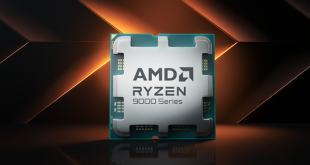Earlier this week Kitguru reported on story of the upcoming Windows 8 platform. Intel executives said that Microsoft would be releasing different versions of Windows 8, with specific versions for the ARM series of processors.
Microsoft have said that this is ‘factually inaccurate'. At an analyst meeting this week, Intel chief Paul Otellini spoke about computers which used the ARM processor, which are scheduled for release around the same time as Windows 8 hits retail. He also said that Microsoft will have four separate versions of Windows 8 on ARM, which going into any specifics.
He said “I believe that Intel is still the only architecture at the chip level whose silicon runs every major operating system out there. And you all know the story on this – the ARM guys are getting a port to Windows. But what the ARM guys are getting are four ports to Windows. Every operating system has to write to the chip and with the writing at Microsoft's doing is doing four versions for ARM vendors, just like Android writes to multiple versions of the ARM chips, and to Intel, now.”
Microsoft have since issued a statement to the press saying “Intel's statements during its Intel Investor Meeting about Microsoft's plans for the next version of Windows were factually inaccurate and unfortunately misleading. From the first demonstrations of Windows on SoC, we have been clear about our goals and have emphasized that we are at the technology demonstration stage. As such, we have no further details or information at this time.”
Intel are aiming to focus on ultramobile processors and have a new strategy for upcoming products set to enter into traditional ARM territory. Lower power demands and better battery life are two of the key goals they want to achieve to gain sales from companies such as Apple.
ARM on the other hand have recently received the support of Microsoft who are supporting their processors in the upcoming version of Windows 8. With ARM set to take a chunk out of Intel's profits Otellini was keen to make the point that Intel are very competitively priced when compared against the British chip maker. He said they were “very competitively priced with ARM-based products.” in the tablet and smartphone sector.
With ARM charging less money for their processors, it is a possibility that specific manufacturers may release low cost PC's to target the ‘casual' audience. People who only need a computer for light duties, such as answering emails, surfing basic websites and low overhead office work.
KitGuru says: Are we going to see ARM and Intel going head to head in various sectors in the next 24 months? It should get hot and heavy.
 KitGuru KitGuru.net – Tech News | Hardware News | Hardware Reviews | IOS | Mobile | Gaming | Graphics Cards
KitGuru KitGuru.net – Tech News | Hardware News | Hardware Reviews | IOS | Mobile | Gaming | Graphics Cards



